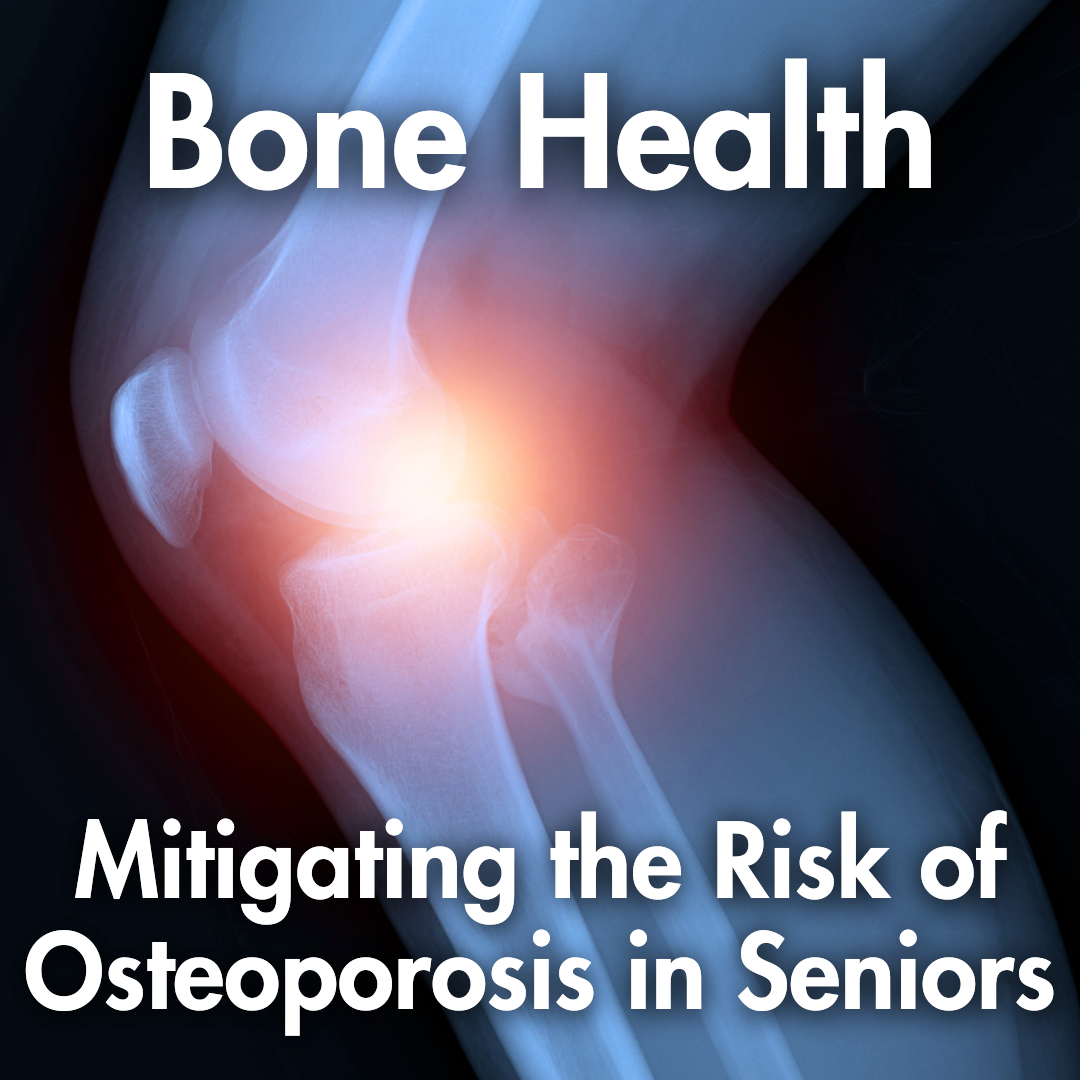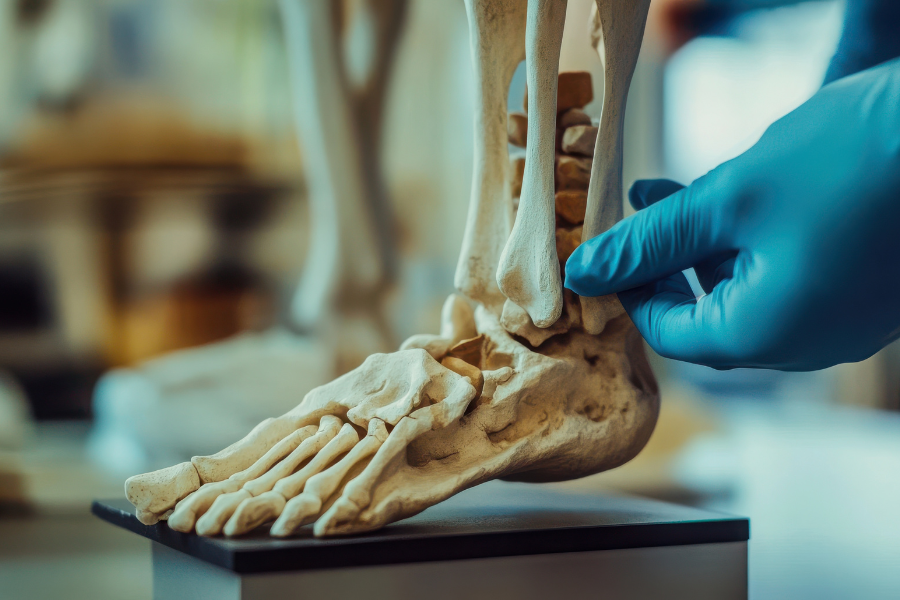.png?lang=en-CA)
November is Osteoporosis Awareness Month in Canada. Osteoporosis is a condition where bones lose strength and density, causing them to be more likely to break, even from minor falls or bumps. Over 2.3 million Canadians have been diagnosed with osteoporosis, with seniors most commonly affected. Approximately 1 in 4 women and 1 in 8 men over the age of 50 in Canada have osteoporosis. Fractures caused by osteoporosis are in fact more common in Canada than heart attack, stroke, and breast cancer combined.
You may be at greater risk of osteoporosis if you are a senior, have a family history of osteoporosis, don’t consume enough calcium, vitamin D and protein, smoke, drink too much coffee or alcohol, don’t exercise, or have used certain medications such as cortisone or prednisone for a long time.
Osteoporosis is commonly referred to as “the silent thief” since many people don’t experience any visible symptoms or signs of their bone weakness until a bone is broken. Bone loss occurs over a number of years, making early detection of osteoporosis critical. It is very important for all men and women over the age of 65 to have their physician assess their risk of osteoporosis and schedule a bone mineral density (BMD) test that tells you whether you have osteoporosis or how likely you are to develop it in the future.
.png?lang=en-CA)
How to Protect Yourself from Osteoporosis
Diet and exercise play a critical role in the prevention and treatment of osteoporosis. Even for those already diagnosed with osteoporosis, it’s never too late to help strengthen your bones and surrounding muscles that support your bones. Calcium, Vitamin D and milk product consumption, along with some weight-bearing exercise, are key factors in maintaining peak bone mass.
Calcium:
Calcium is one of the most important nutrients responsible for the maintenance of strong bones. Experts recommend that all Canadian seniors consume 1200mg of calcium per day to slow down bone loss and reduce the risk of fracture. Studies have proven that milk products are the most absorbable (or bioavailable) form of calcium. Milk products are also the preferred source of calcium over supplements, as they also contain other key nutrients that work synergistically to help support bone strength. Furthermore, calcium supplements are only absorbed at the rate of approximately 70% of consuming milk.
.png?lang=en-CA)
Vitamin D:
Vitamin D is also integral in reducing the risk of osteoporosis. It helps to increase the absorption of calcium, ultimately building stronger bones. It also improves the function of muscles that help stabilize bones, thereby improving balance and decreasing the likelihood of falls. Experts recommend that all Canadian adults take a vitamin D3 supplement throughout the year, along with consuming dairy daily. Unlike calcium, it is very difficult for Canadians to get their recommended daily amount of vitamin D from natural sources alone, like the sun and dairy, therefore supplementation is recommended. For seniors, 600-800iu daily is a generally appropriate and safe dose to help increase the absorption of calcium, however this amount may fluctuate person to person. Please consult with your physician to determine the right personal dosage for you before taking any supplements.
.png?lang=en-CA)
Exercise:
Finally, staying active will also be instrumental in helping to keep your bones strong. Regular physical activity builds strong muscles and bones and also improves balance. Light weight bearing exercises such as walking, low-impact aerobics, dancing, aquafit, lifting weights, and golf are all excellent ways to keep bones and muscles strong while enhancing your social life. Please be sure to consult your physician before beginning any exercise, health, or nutrition program to determine what may be right for you.
.png?lang=en-CA)


